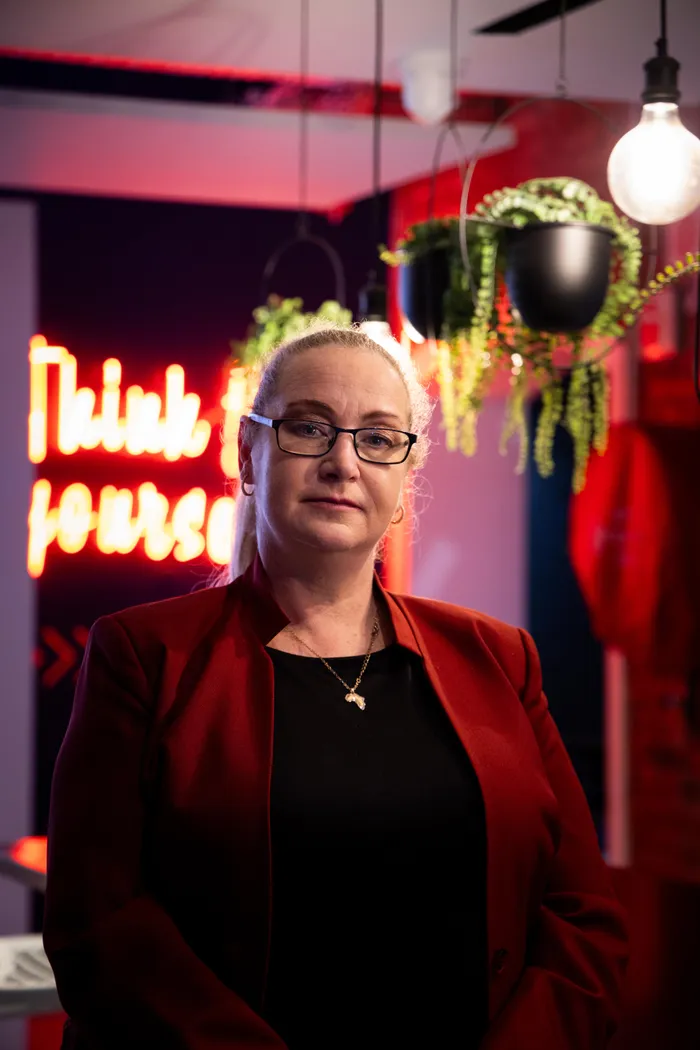
FIONA Miles, Director of FOUR PAWS South Africa, who delivered the keynote State of Animal Welfare Address. Her address was a central part of the high-level annual platform, which brings together leaders to reflect on the progress and future of animal welfare in South Africa. VIER PFOTEN_2025-08-13_00023.jpg
Image: Supplied.
EXPERTS have called for animal welfare to be integrated into the country’s national development plans to build a healthier, more resilient country.
The call was made at this year’s State of Animal Welfare Address, hosted by FOUR PAWS South Africa and live-streamed to a global audience earlier this week.
The annual event brought together voices from government, academia, and civil society to highlight how companion, farm, and wild animals, which are often sidelined in national policy, are vital to public health, food security, and environmental sustainability.
“We cannot speak of public health, environmental justice, or sustainable food systems without addressing the systemic neglect of animals,” said Fiona Miles, Director of FOUR PAWS South Africa. “It is time to mainstream animal welfare into our national development strategy, not as a luxury, but as a necessity for resilience, justice, and health.”
This year’s address focused on how a more inclusive One Health approach, which recognises the interdependence of people, animals, and the environment, could help South Africa improve its response to threats such as disease outbreaks, climate change, and food insecurity.
Dr André Coetzer, Technical Director at the Global Alliance for Rabies Control (GARC), warned that the poor treatment of dogs and cats was weakening national health systems. “Neglecting the welfare of companion animals weakens our national capacity to prevent deadly zoonoses like rabies. Mass vaccination and sterilisation are not just ethical, they’re scientifically proven and cost-effective tools to save lives,” he said.
Dr Masika Sophie, Global Health Policy Manager at the World Federation for Animals (WFA), echoed concerns about industrial farming practices. “Factory farming is a key driver of antimicrobial resistance, zoonotic outbreaks, and food insecurity. We must reimagine Africa’s food systems by putting animal welfare at the centre of resilience and sustainability.”
Miles also addressed South Africa’s controversial captive wildlife industry, calling for urgent reform. “The commodification of wild animals, especially big cats, is both unethical and dangerous. It undermines our international conservation standing and creates serious public health threats. Ending these exploitative practices must be a national priority.”
Moderated by Dr Tedson Nkoana, Academic Project Co-ordinator at Future Africa, the panel discussion emphasised the need for cross-departmental coordination and stronger policy alignment.
“We need cross-sector collaboration between health, agriculture, and environment departments. Policy coherence is essential to pandemic prevention and long-term national resilience,” said Nkoana.
Miles closed the event with a call to action for policymakers and civil society alike.
“Animal welfare is not a fringe issue; it is essential to our nation’s well-being. It affects our food, environment, health, and shared values. It must be moved from the margins into policy, budgets, science, and our collective vision for a just South Africa,” she said.
“To government officials, we need champions across Parliament and key ministries to lead and embed animal welfare within the One Health framework and to our fellow NGOs, we must be proactive, strategic and united. Let us coordinate our tasks and build bridges to government. South Africa has the opportunity and the responsibility to lead globally by building a humane, healthy, and sustainable future.”
For more information about the State of Animal Welfare Address, visit www.four-paws.org.za.